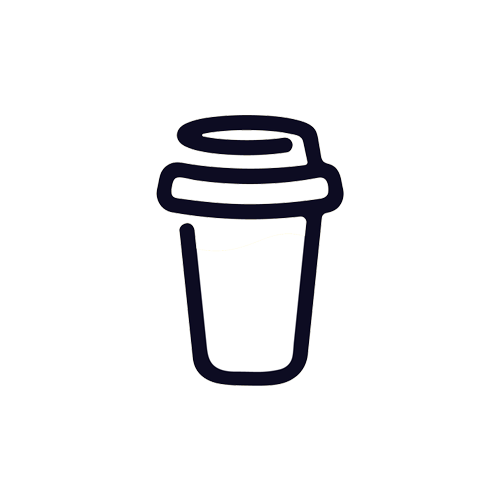
Optimize your programming by eating healthy
As a programmer, it's easy to get caught up in long hours of coding and forget about the importance of proper nutrition. However, the food you eat can have a significant impact on your productivity, energy levels, and overall health. In this article, we'll discuss the importance of a healthy diet for programmers, provide some tips for eating well while working, and suggest some healthy meal and snack options.
First, let's talk about why a healthy diet is important for programmers. Proper nutrition is crucial for maintaining mental clarity and focus, as well as physical energy and vitality. When you're working long hours in front of a computer, it's easy to neglect your diet and reach for quick and convenient, but often unhealthy, options like fast food or vending machine snacks. However, these types of foods are often high in unhealthy fats, added sugars, and empty calories, which can lead to a crash in energy levels and productivity.
On the other hand, a diet rich in whole foods such as fruits, vegetables, whole grains, and lean proteins can provide the nutrients your body and brain need to function at their best. These types of foods can help you maintain stable energy levels, improve your mental clarity and focus, and support overall health and well-being.
So, how can you make sure you're getting the nutrients you need while juggling the demands of a busy programming schedule? Here are a few tips:
- Plan ahead: One of the biggest challenges of eating well while working is finding the time to prepare healthy meals and snacks. To make it easier, try to plan your meals and snacks in advance. This could involve packing your lunch and snacks for the day, or preparing a batch of healthy meals on the weekends that you can easily grab and go throughout the week.
- Keep healthy snacks on hand: It's easy to get distracted and reach for unhealthy snacks when you're working, so it's important to have healthy options available. Some good choices include fruits, vegetables, nuts, and seeds. You could also try making your own energy bars or protein balls to have on hand as a quick and healthy snack.
- Take breaks: It's important to take regular breaks from your work to give your brain a chance to rest and recharge. During these breaks, take the opportunity to step away from your computer and have a healthy snack or meal. This can help you refocus and be more productive when you return to work.
- Stay hydrated: Proper hydration is essential for maintaining mental clarity and focus. Make sure to drink plenty of water throughout the day, and consider keeping a water bottle at your desk to remind you to stay hydrated.
- Eat a balanced diet: A balanced diet is essential for optimal health and well-being. Make sure to include a variety of whole foods in your meals, including fruits, vegetables, whole grains, and lean proteins. Avoid processed and refined foods as much as possible, as these tend to be low in nutrients and high in unhealthy additives.
Now that we've discussed the importance of a healthy diet and provided some tips for eating well while working, let's talk about some specific meal and snack options that can help support your programming work.
For breakfast, consider trying a bowl of whole grain oats with nuts, seeds, and fresh fruit. Oats are a great source of complex carbohydrates, which can provide sustained energy throughout the morning. Nuts and seeds are a good source of healthy fats and protein, which can help keep you feeling full and satisfied. Fresh fruit provides a burst of natural sweetness and is a great source of nutrients.
Here are a few healthy lunch options for programmers:
- Whole grain sandwich with avocado, chicken, and vegetables: Whole grain bread, such as whole wheat or rye, provides complex carbohydrates and fiber, while avocado and chicken provide healthy fats and protein. Add in a variety of vegetables, such as lettuce, tomato, and cucumber, for added nutrients and crunch.
- Grilled chicken and vegetable skewers: Grilled chicken and vegetables, such as bell peppers, zucchini, and onions, make for a protein-rich and nutrient-dense lunch option. Serve with a side of quinoa or brown rice for added fiber and complex carbohydrates.
- Black bean and corn salad: Black beans and corn are both good sources of protein and nutrients, and they can be easily combined with a variety of vegetables, such as bell peppers, tomatoes, and onions, for a flavorful and satisfying lunch.
- Tofu and vegetable stir-fry: Tofu is a good source of plant-based protein and can be easily combined with a variety of vegetables and whole grains, such as brown rice or quinoa, for a well-balanced and satisfying lunch.
- Whole grain pasta with marinara sauce and vegetables: Whole grain pasta provides complex carbohydrates and fiber, while marinara sauce and vegetables provide nutrients and flavor. This combination makes for a quick and convenient lunch option.
Here are a few healthy dinner options for programmers:
- Grilled chicken or fish with roasted vegetables: Grilled chicken or fish is a lean and protein-rich option, while roasted vegetables provide a good source of nutrients and fiber. This combination makes for a well-balanced and satisfying meal.
- Quinoa and black bean burrito bowls: Quinoa is a great source of plant-based protein and fiber, while black beans provide additional protein and nutrients. Add in a variety of vegetables and season with spices for a flavorful and satisfying meal.
- Vegetarian stir-fry: Stir-fries are a quick and easy way to get a variety of vegetables into your diet. Use tofu or tempeh as a protein source and serve over brown rice or quinoa for a complete and satisfying meal.
- Grilled vegetable and hummus wrap: Grilled vegetables, such as zucchini, bell peppers, and eggplant, provide a good source of nutrients and fiber. Pair them with hummus, which is a protein-rich spread made from chickpeas, and wrap in a whole grain tortilla for a tasty and convenient dinner option.
- Slow cooker lentil soup: Lentils are a great source of plant-based protein and fiber, and they can easily be cooked in a slow cooker with a variety of vegetables and seasonings for a healthy and filling dinner.
Remember to also include a source of healthy fats, such as olive oil or avocado, in your dinners to support overall health and well-being. It's also important to listen to your body's hunger and fullness cues and stop eating when you feel satisfied, rather than overly full. By incorporating these healthy dinner options into your routine, you can support your programming work and overall health.




